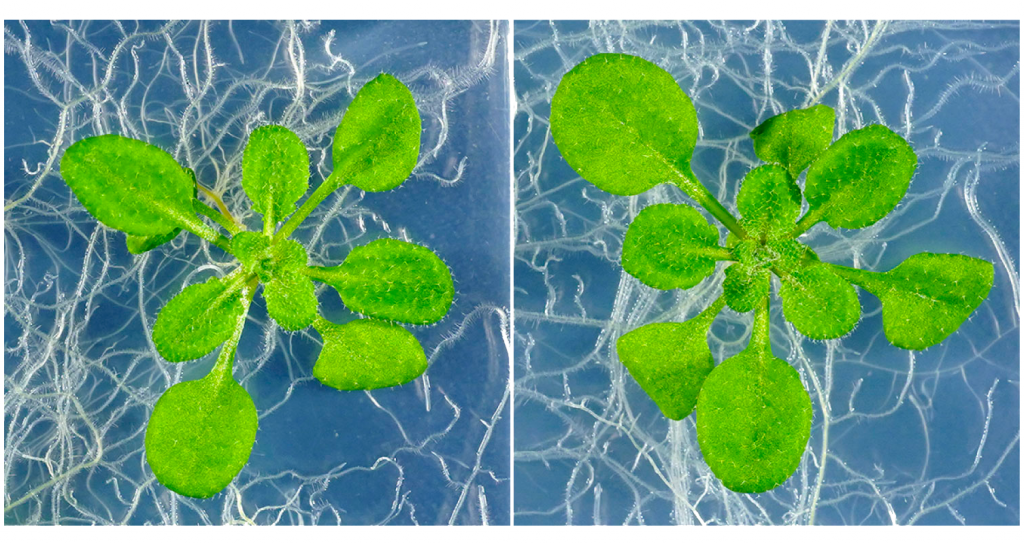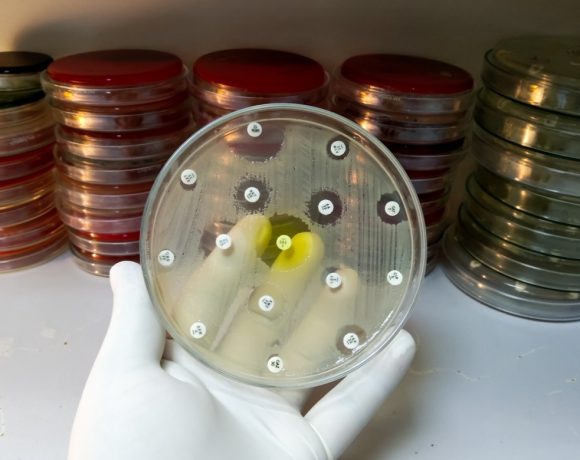- Affected by their environment, plants combat stress using a portion of their energy to synthesise proteins and organic matter. A plant has limited energy resources and a stressed plant will normally prioritise stress protection over growth.
- Studying the role of stress in plant growth will help producers make better-informed judgments about managing their land and develop areas for agriculture.
- A team of researchers at Nagoya University’s Graduate School of Science, Japan, is studying the role of peptide hormones. The group has discovered a sulphated peptide family found in all plant species, including mosses, called PSY and its receptor, PSYR.
Given that demographers expect the world population to reach 9.7 billion people by 2050, increasing food production to meet demand has become an urgent issue. However, as shown by recent problems such as international conflicts, supply chain disruptions, and extreme weather fluctuations, it is challenging to maintain a stable supply of food, with even minor disruptions having significant consequences.
One way to increase food production is to improve crop yields. This involves utilising all available land and ensuring maximum yields are obtained from every hectare. However, many areas have a shortage of ideal growing areas. Crops grown under such less-than-ideal conditions may suffer from stressors, including drought, disease, salty soils, pests, and extreme temperatures, that stunt their growth and lower the yield.
Therefore, to increase yield, scientists and farmers need a better understanding of, first, how crops react to stress, and, second, how to cultivate them to withstand a multitude of stressors. Studying the role of stress in plant growth should allow producers to make better-informed judgments about how to manage their land and develop areas for agriculture.
Affected by their environment, plants combat stress using a portion of their energy to synthesise proteins and organic matter in what is known as the “growth-stress response trade-off”. The trade-off between plant growth and stress response is a common mechanism in plants, occurring even among plants raised under controlled conditions. As a plant has limited energy resources, a stressed plant will normally prioritise stress protection over growth.
The growth-stress response trade-off has been the subject of substantial research, with most studies concentrating on the response of the stressed cell itself, but at Nagoya University’s Graduate School of Science, Japan, our team of researchers is studying the role of peptide hormones. Through our work, we discovered a sulphated peptide family found in all plant species, including mosses, called PSY and its receptor, PSYR.
In a recent study, we used thale cress to show that plants use PSY to regulate the stress response by switching it on and off. Although we did not initially know the role of the hormone in this process, after 15 years of research, we discovered that it produced physiological effects in cells involved in the plant stress response.
To understand our findings, it is important to consider the differences between these hormones and typical hormones. In general, hormones and their receptors are like a lock and key. First, the hormone interacts with its receptor, and, second, it signals to the plant that it should induce gene expression. If there is no hormone, the receptor remains inactive.
However, the stress response mechanism we identified differed from the standard model. We found that in the absence of the hormone PSY, the receptor PSYR induces the expression of various genes involved in the stress response. In other words, the function of the PSYR is not to function as a lock or key. Instead, the stress response is kept turned on, and under normal conditions, the reaction is suppressed by the presence of PSY peptides but activated if the PSY is absent.
Usually, plants keep the stress response off by continuously creating PSY peptide hormones. But when a stressor, such as a bacterial disease, damages the cells of a plant, it stops producing PSY at the site. Therefore, the concentration of surrounding PSY decreases, and the receptor PSYR is activated in cells at the damaged site and around it, inducing a stress response. Given that the hormone can not only move between cells but also act on distant cells, plants effectively induce the stress response in the cells surrounding the stress-damaged area. This prevents the expansion of the damaged area while minimising the effect on the growth rate of the rest of the plant body. It is a very efficient survival strategy because, instead of producing a signalling hormone, a costly use of limited resources, plants simply cease inhibiting the stress response.
Understanding the response to stress in plants has important implications for the growth of crops in different environments. Companies are increasingly growing crops throughout the year in plant factories where farmers control light, temperature, humidity, and carbon dioxide. Plants grown indoors under these conditions are in a low-stress environment, which means that they do not have to rely on the stress response system that evolved to handle the unpredictable nature of the outdoors. Therefore, if we can inhibit the PSYR stress response in plants grown under such conditions, we may be able to promote their growth, resulting in higher crop yields and food stocks.
When our lab grew genetically modified plants grown without PSYR, we found an increase in their growth. This is an encouraging sign that we may be able to optimise the balance between stress tolerance and yield. However, genetic modification is controversial and subject to legal restrictions that vary by country.
Clustered Regularly Interspaced Short Palindromic Repeats, also known as CRISPR, is a promising technology that can destroy genes. As the process is not subject to current regulations on genetically modified organisms, by controlling the genes that encode PSYR, we could reduce PSYR function and limit the resources expended in the stress response of plants. This would, in turn, promote growth, opening the door to the exciting possibility of increasing crop yields under conditions where environmental stress is low, such as plant factories, without legal restrictions.

PSY receptor mutant (right) and wild type (left). PSY receptor mutant is less stress tolerant, but its growth is facilitated. Photo: Dr. Yoshikatsu Matsubayashi






NO COMMENT